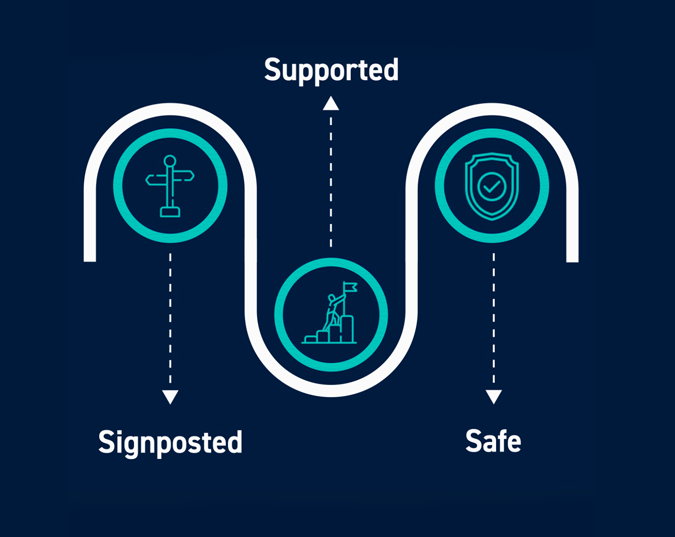Managing New Starters During Lockdown? Here are 4 handy Tips to remotely manage their performance
During a recent workshop that I ran with a corporate client, one of the attendees raised a particular concern regarding managing performance within her team. This concern emerged during lockdown and the ‘work from home’ initiative that followed.
Simply put, it was the worry that new joiners who took up roles during lockdown didn’t yet ‘get’ the ‘pace and way of doing things’ within her team and across the organisation as a whole. The elements of the ‘company vibe’ that are usually so palpable when a person joins during regular circumstances, she felt, were now non-existent. This was mainly due to the fact that these new hires are asked to form part of an already established team, formed pre-lockdown. New hire induction consisted of the new team member’s first day ‘on the job’ sitting at home, virtually meeting team members during one to one informal briefings, if they were lucky.
She lamented the ease at which people during usual times, ‘just understood’ the culture once they joined the team and in particular saw first-hand how leaders communicated with their teams on the floor and in ‘real time’.
Nowadays, it is becoming increasingly difficult to ascertain if the person is the ‘right fit’ for the organisation during the standard probationary period. This is mainly due to the fact that behavioural elements of performance, usually observed and witnessed first-hand by the team leader / manager are now almost invisible.
Part of the mid-manager role is to gauge team engagement and morale levels. My clients are reporting that this is sometimes quite a challenge during ‘zoom check ins’ and I am repeatedly told stories of how managers now feel that they need to improve their mind-reading skills! It is fair to say that there is a refreshed skillset needed now to manage performance. Due to the missing element of face to face human interaction within their teams both new hires and managers alike are crying out for ways in which to feel more engaged and to raise levels of engagement, respectively. This is particularly true for management who are faced with leading teams consisting of more introverted, less expressive personality types who would, under normal circumstances perhaps be less vocal when it comes to asking for support, and raising specific job-related queries.
So – what is the remedy? I have been in the privileged position of hosting a focus group recently, on behalf of a financial services client. During this virtual session, I had the unique opportunity to check in with new joiners who started during the Covid lockdown period. I asked them what they found most helpful since joining and what they found most challenging.
I made a suite of recommendations to my client, as a result of these findings. Here, I would like to share these with you the reader in a in a general way, so that you can see for yourself what your teams need from you!
1. The Manager as Coach – Now, more than ever we need shift the balance between ASKING rather than TELLING our teams. This means that the manager is required to step into the role of coach more often and is certain to need a good strong repertoire of open-ended questions to get the coaching approach kicked off nicely. As with any beautifully put open-ended question, the key is to remain quiet long enough for the ‘coachee’ to answer. This, I find, is another skill altogether! I.e. the art of allowing a little period of silence while the fabulously powerful open question is being pondered and digested by the recipient. The ‘manager as coach’ therefore is a mindset and a skillset which is now an essential requirement as we lead virtual teams through this period, and beyond.
2. The Art of Giving Feedback – Performance management is nothing without robust, timely and well-intended feedback. Alas, this is something that most managers find difficult at various times for various reasons. In my experience, I have seen how management repeatedly underestimate the value that regular feedback conversations add to the employee-manager relationship. I.e. in building solid relationships of trust and loyalty – regular feedback is an essential ingredient. But how is it done? How do I give feedback and keep the relationship intact, I hear you ask? There are many ways NOT to give feedback! However, there are a couple of very simple and effective ways to provide feedback in ways which still keep the relationship intact! I cover these skills on my workshops with every group of managers that I work with, without fail.
3. What is the Vision? I have been working with teams across various industries during lockdown to either create from scratch their mission, values, vision and behaviours OR, to ‘dust down’ the ones that they’ve already gone to great lengths to create. Why is this? It is because, leaders and managers are realising that their teams need a clear ‘moral code’ now especially with ‘in the flesh’ interactions reduced down to a bare minimum. Management teams are in dire need of frameworks to help guide and steer one to one and performance review discussions. Increasingly an organisation’s ‘moral code’ as set out in the vision, mission, values and behavioural standards are now being given a new lease of life and I say an absolute resounding ‘Yes’ to this!
4. Communicate! (Even when there is no update) Yes, we have all heard of ‘zoom fatigue’ and yes of course it is a real issue. However, what is never going to go away is the need for employees to be kept informed, updated and educated. In the absence of regular updates, people, being human will begin to make up their own and usually the ‘made up’ versions are negative and fuelled on misconstrued gossip and in some cases plan old fear mongering! Senior leaders now is the time to keep those ‘town hall’ briefings going, keep celebrating the small successes and keep telling the story of what the company has achieved, what this means for the employees, and what the future goals are etc. There can never be too much communication and remember you cannot NOT communicate! Think of that the next time you go to cancel a one to one meeting, or a team meeting in particular.

FREE RESOURCE - EVOLVE
COMPLETE OUR CULTURAL GAP ANALYSIS TOOL
Carry out an easy 3-step gap analysis now, which we will be happy to follow up with a free, no obligation virtual check-in.





